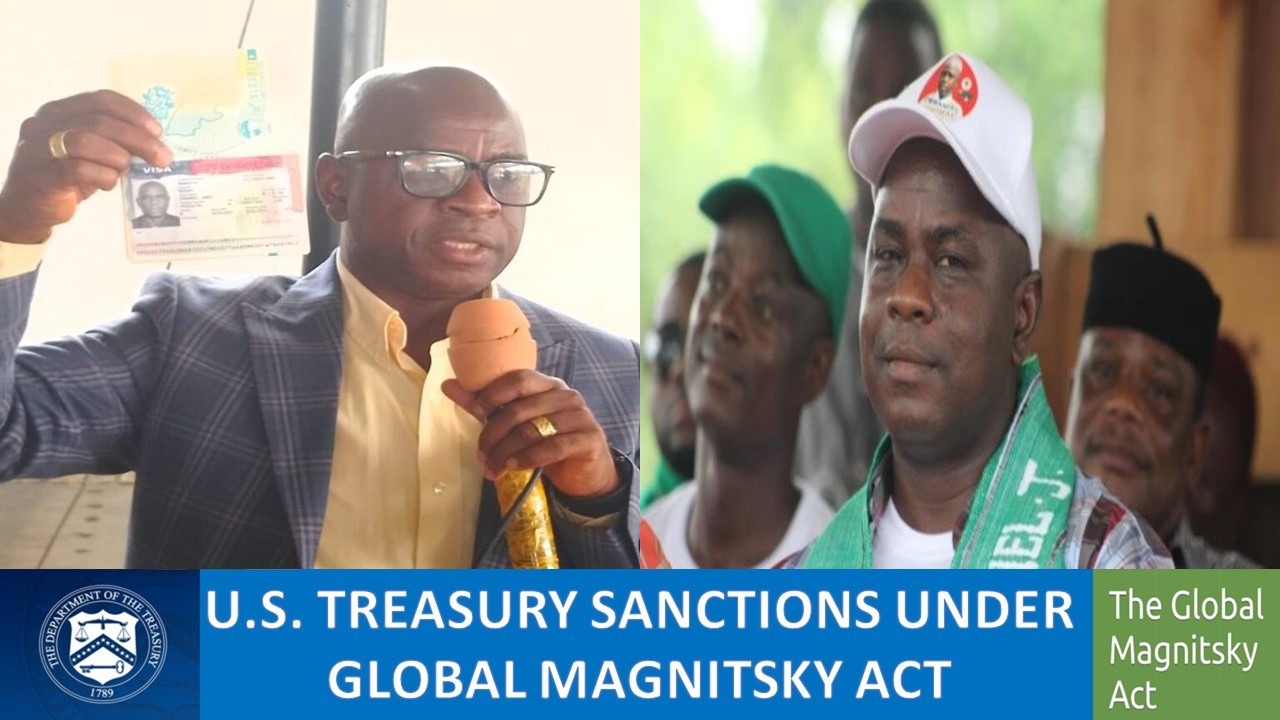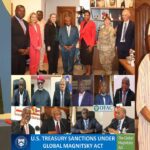In a turn of events that has left many stunned, Senator Emmanuel Nuquay, once confident in his ability to obtain a U.S. visa whenever he pleased, now finds himself among the high-profile Liberian officials sanctioned by the United States Department of State. The irony is glaring, as just a few months ago, he confidently displayed a U.S. visa in a video that resurfaced on social media.
In the October video, Nuquay responded to rumors of being denied a U.S. visa, showcasing a copy of the visa and declaring his ability to visit the U.S. Embassy for a visa anytime he pleased. He dismissed allegations, particularly targeting former Minister of State Nathaniel McGill, suggesting that McGill, now Senator-elect of Margibi County, had been “condemned” by the United States.
Nuquay asserted, “Eighteen years of service and hard work, I can go to the US Embassy and get multiple entry visas. If I want to go to America every month, I can go to America every month.” He confidently challenged his detractors, stating that those who had been “condemned by America” could not even walk near the U.S. Embassy.
However, the tables have turned for Nuquay, who now faces the same sanctions he once dismissed with bravado. Alongside Finance Minister and Development Planning Minister Samuel Tweah and Senate Pro-Tempore Albert Chie, Nuquay has been banned from entering the United States, along with their spouses and minor children. This visa restriction is imposed under Section 7031(c) of the Department of State, Foreign Operations, and Related Programs Appropriations Act, signaling the U.S. commitment to combat corruption on a global scale.
The sanctions stem from allegations that the designated officials abused their public positions by soliciting, accepting, and offering bribes to manipulate legislative processes and public funding, including activities in the mining sector. The timing of these sanctions, just weeks before the Senate leadership elections, has raised eyebrows, with Senator Chie expressing concern over the US government’s actions.
In response to the sanctions, Senator Chie categorically denied the allegations, calling them “misleading and false.” He vowed to use legal processes to clear his name and that of his family from the visa restriction list. Chie also criticized the timing of the sanctions, emphasizing the potential impact on the integrity of senators, whether in the ruling position, opposition, or no position.
The swift turn of events highlights the unpredictability of political landscapes and the consequences that can follow those who once boldly dismissed the possibility of facing international sanctions. Nuquay, once proud of his ability to obtain U.S. visas, now grapples with the repercussions of the U.S. government’s condemnation, underscoring the importance of accountability and transparency in public service.
As Liberia navigates these challenging times, the sanctions against high-profile officials serve as a stern reminder that no one is above the scrutiny of international standards for combating corruption and upholding human rights. The outcome of legal processes and the continued commitment of the Liberian government to addressing corruption will determine the trajectory of these sanctions and their implications for the nation’s leadership.




